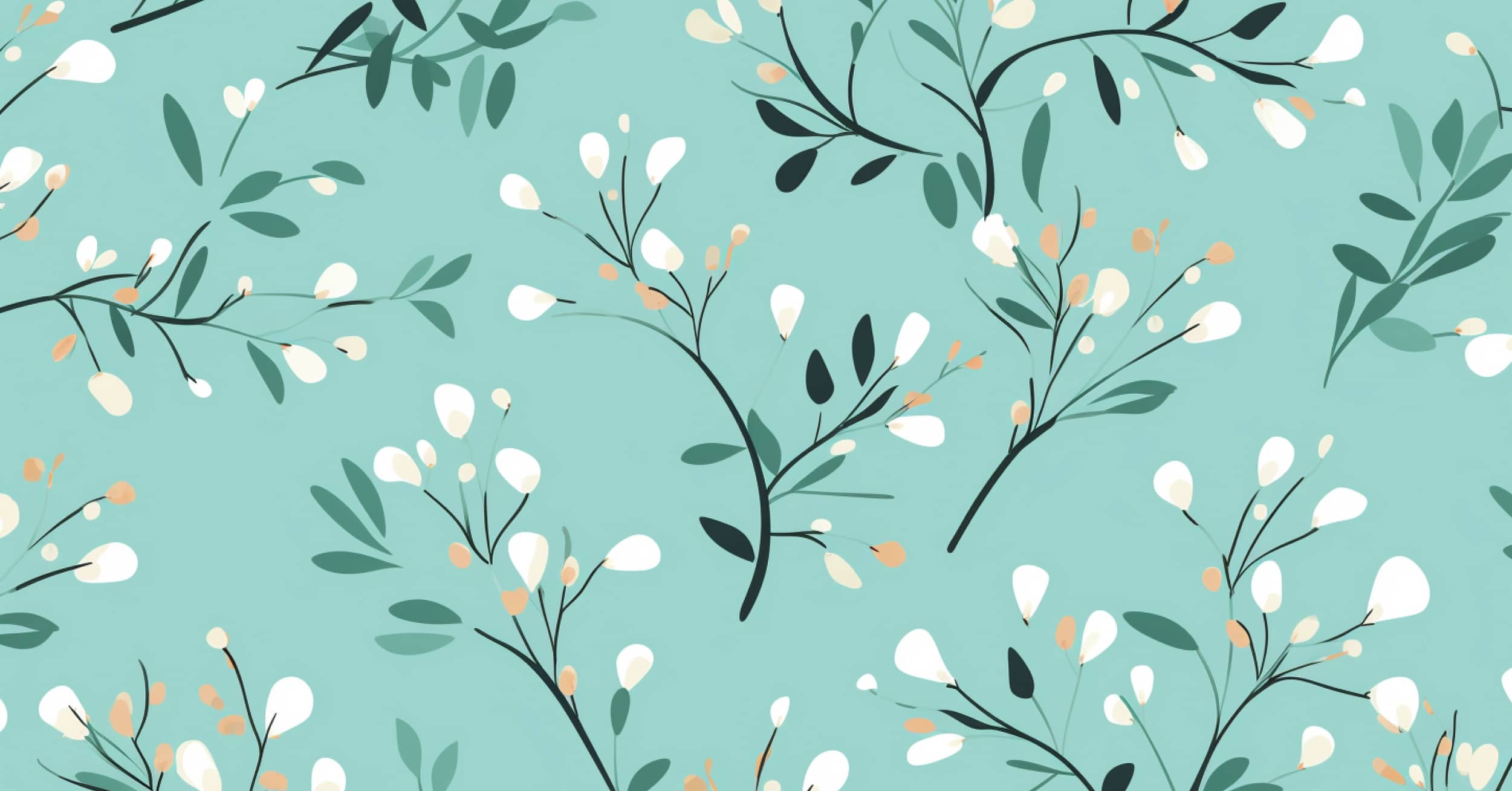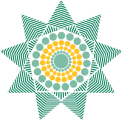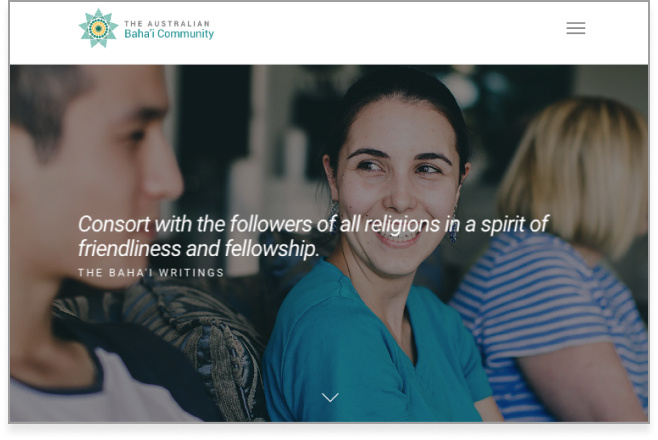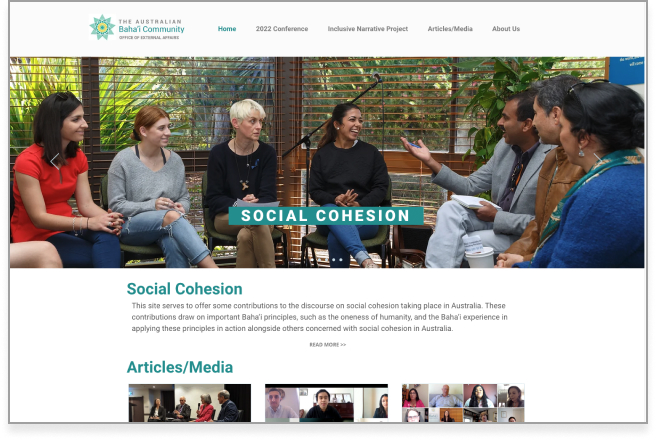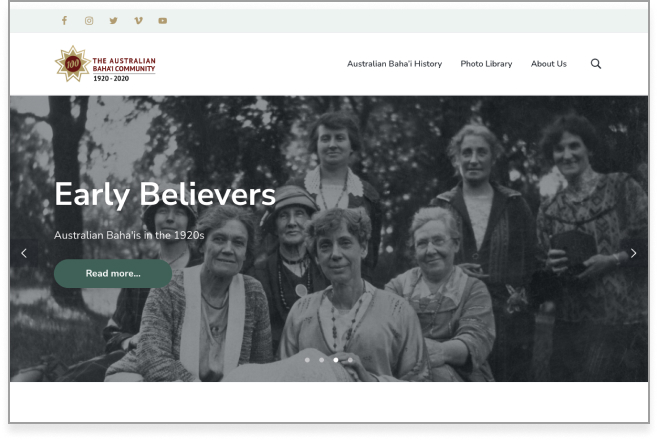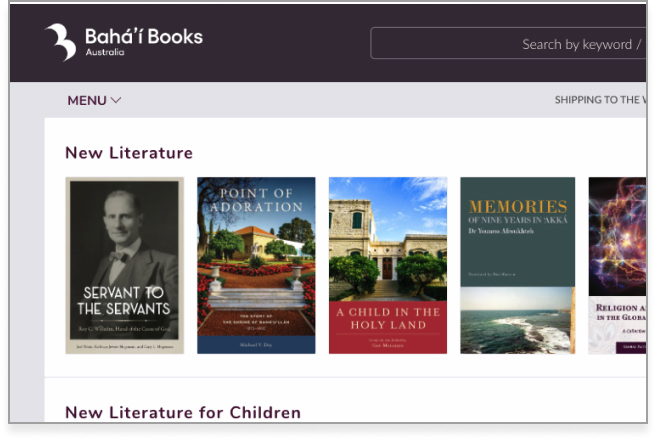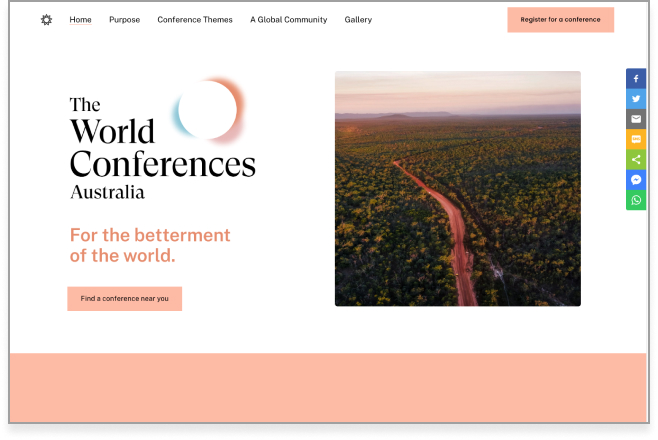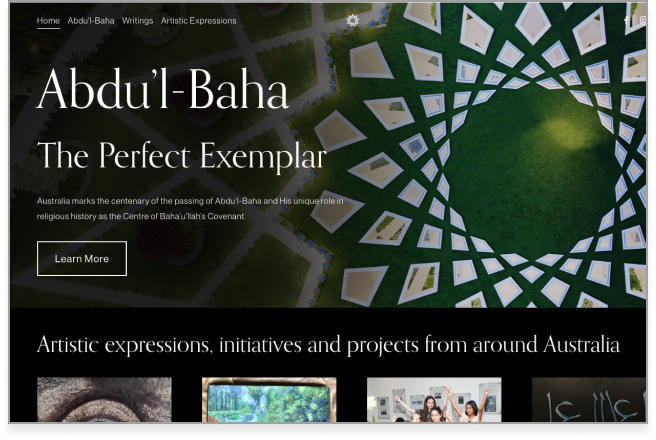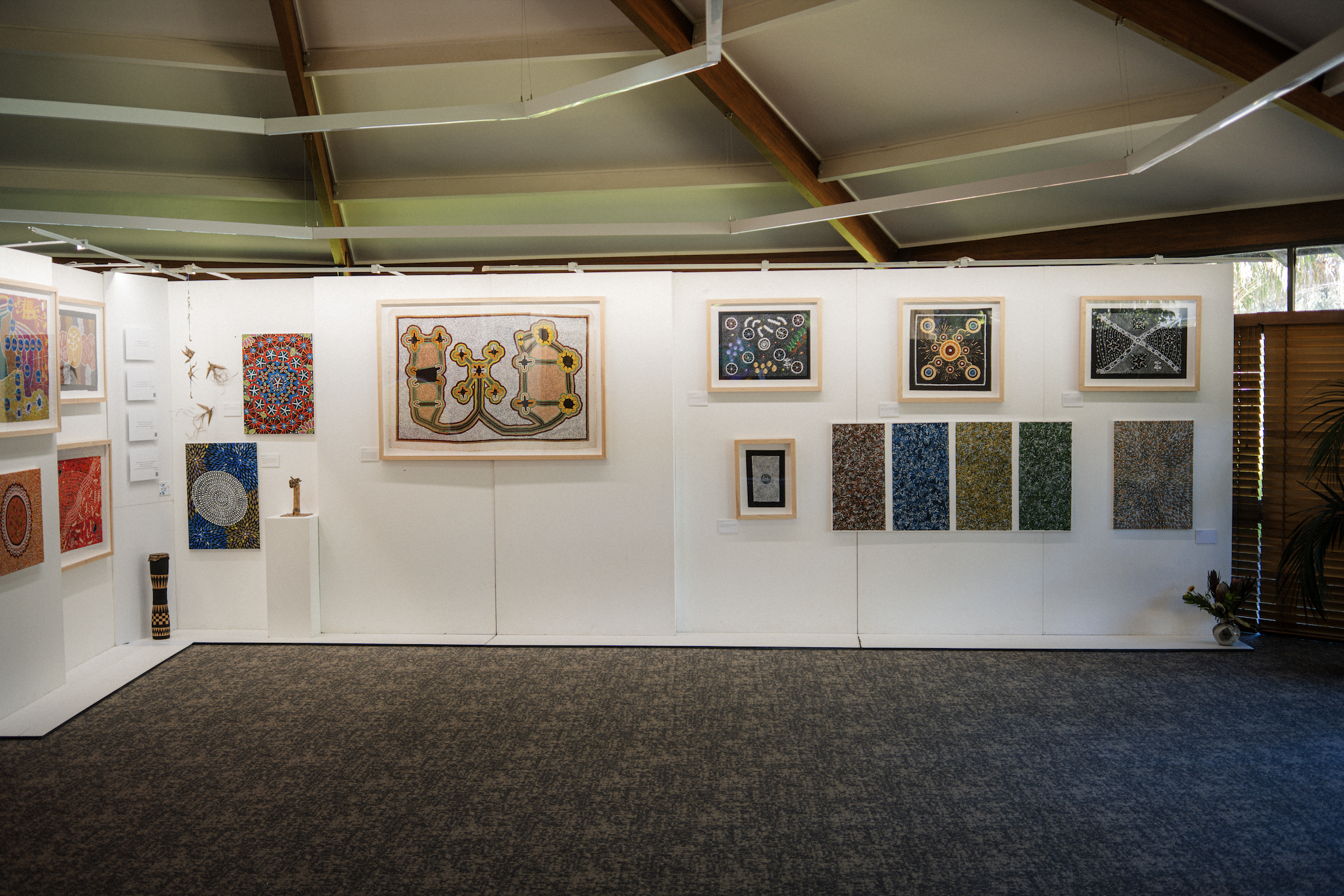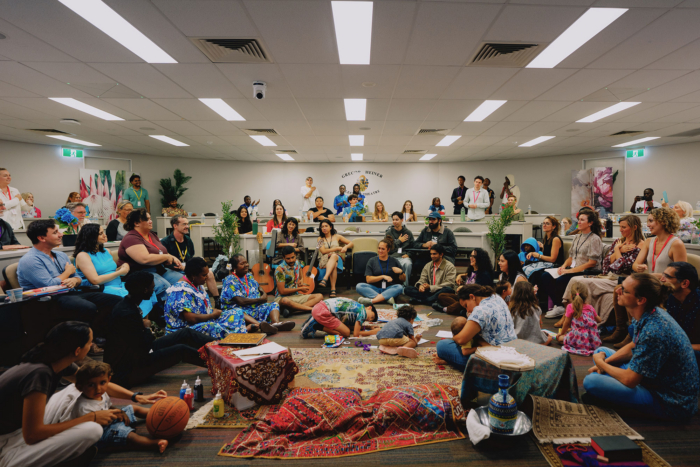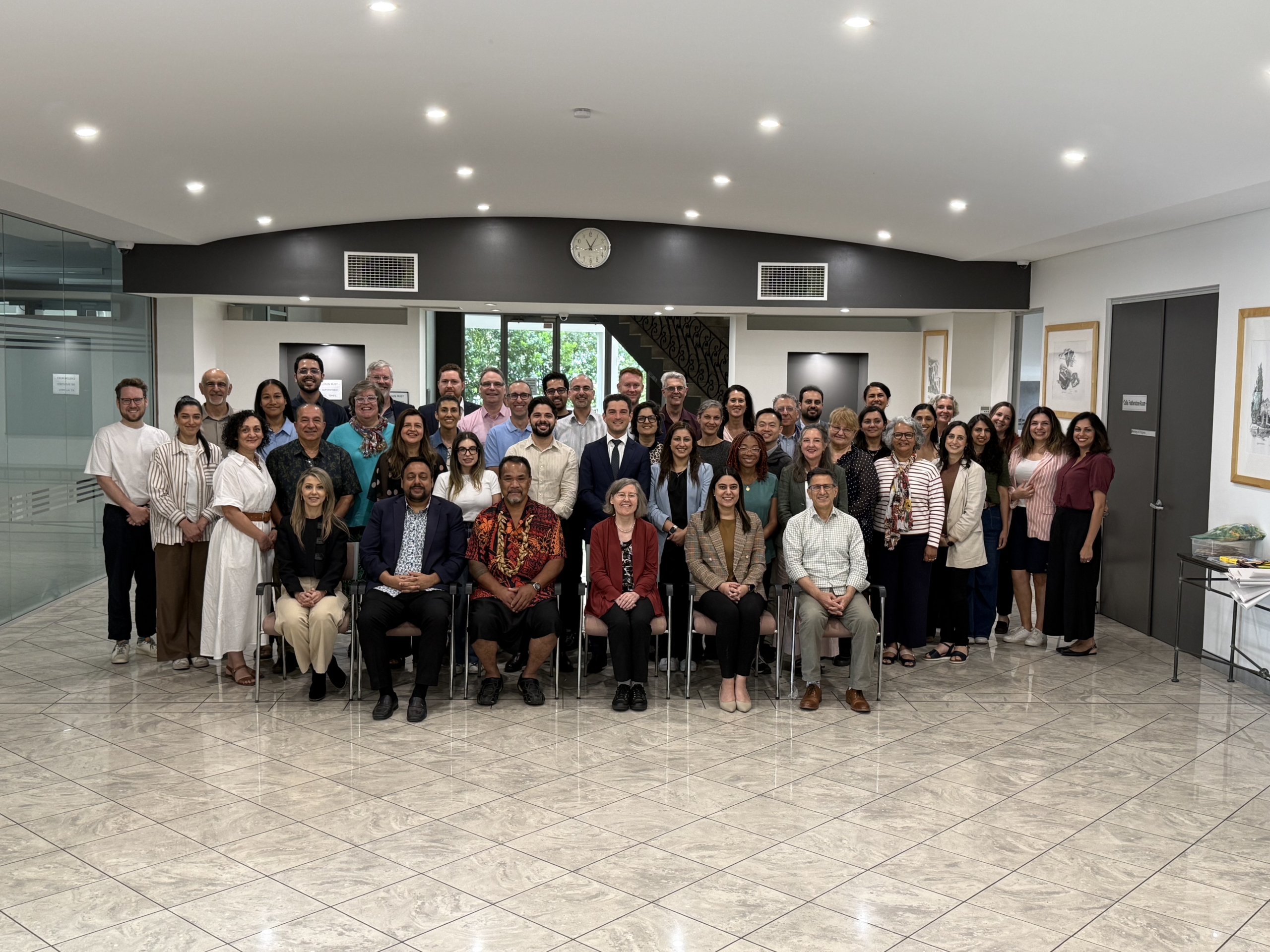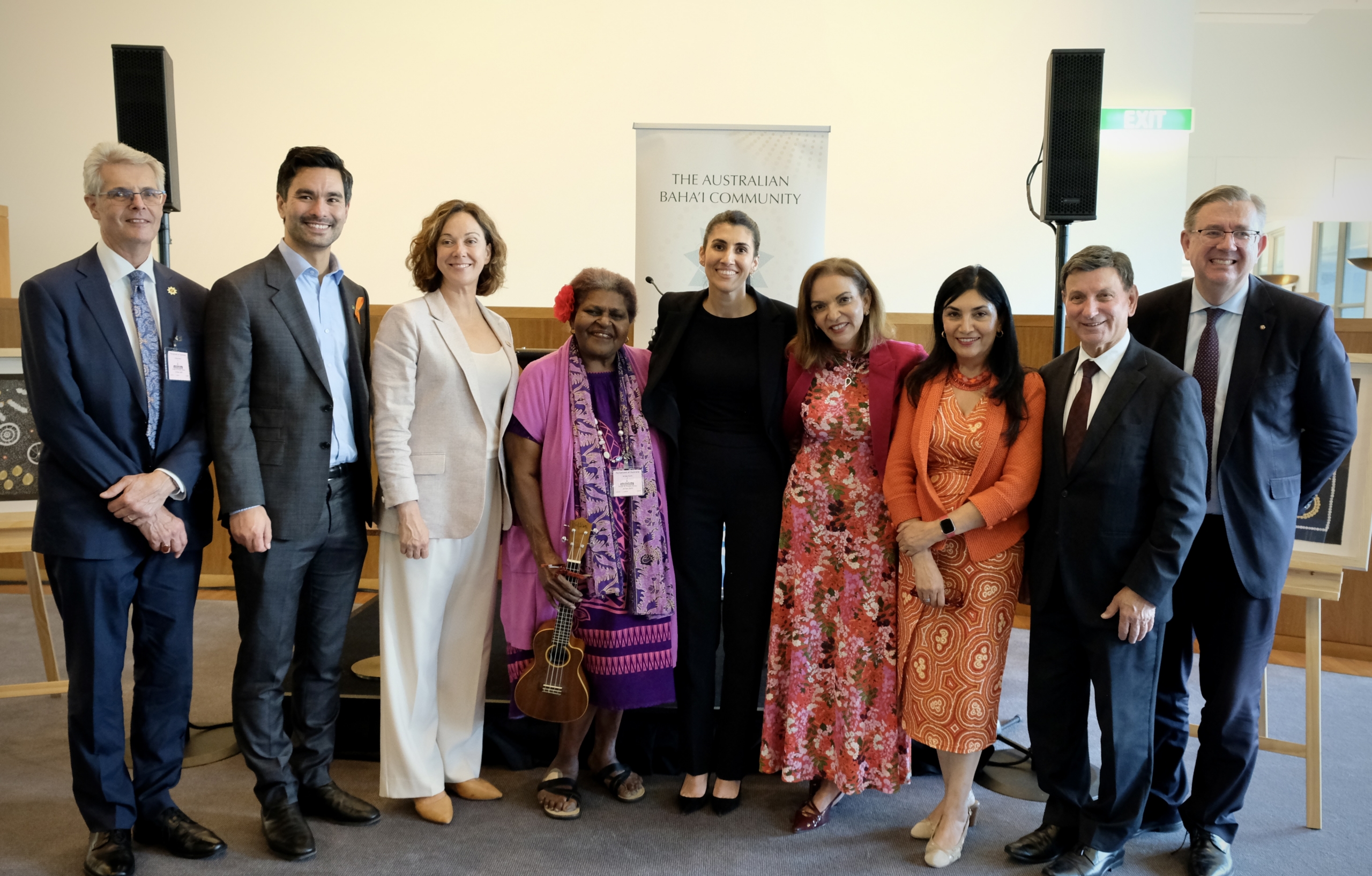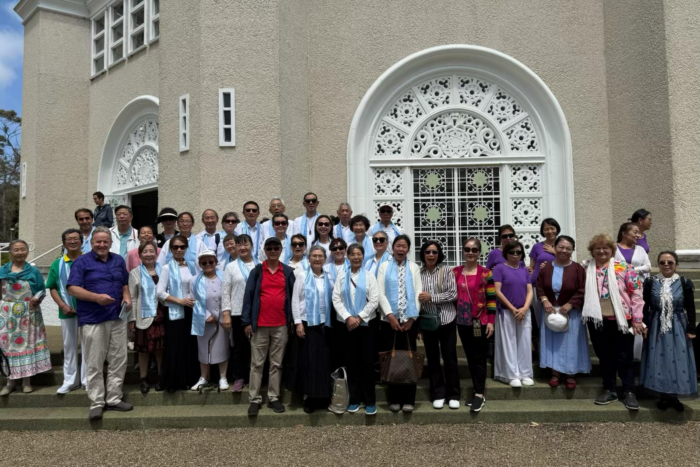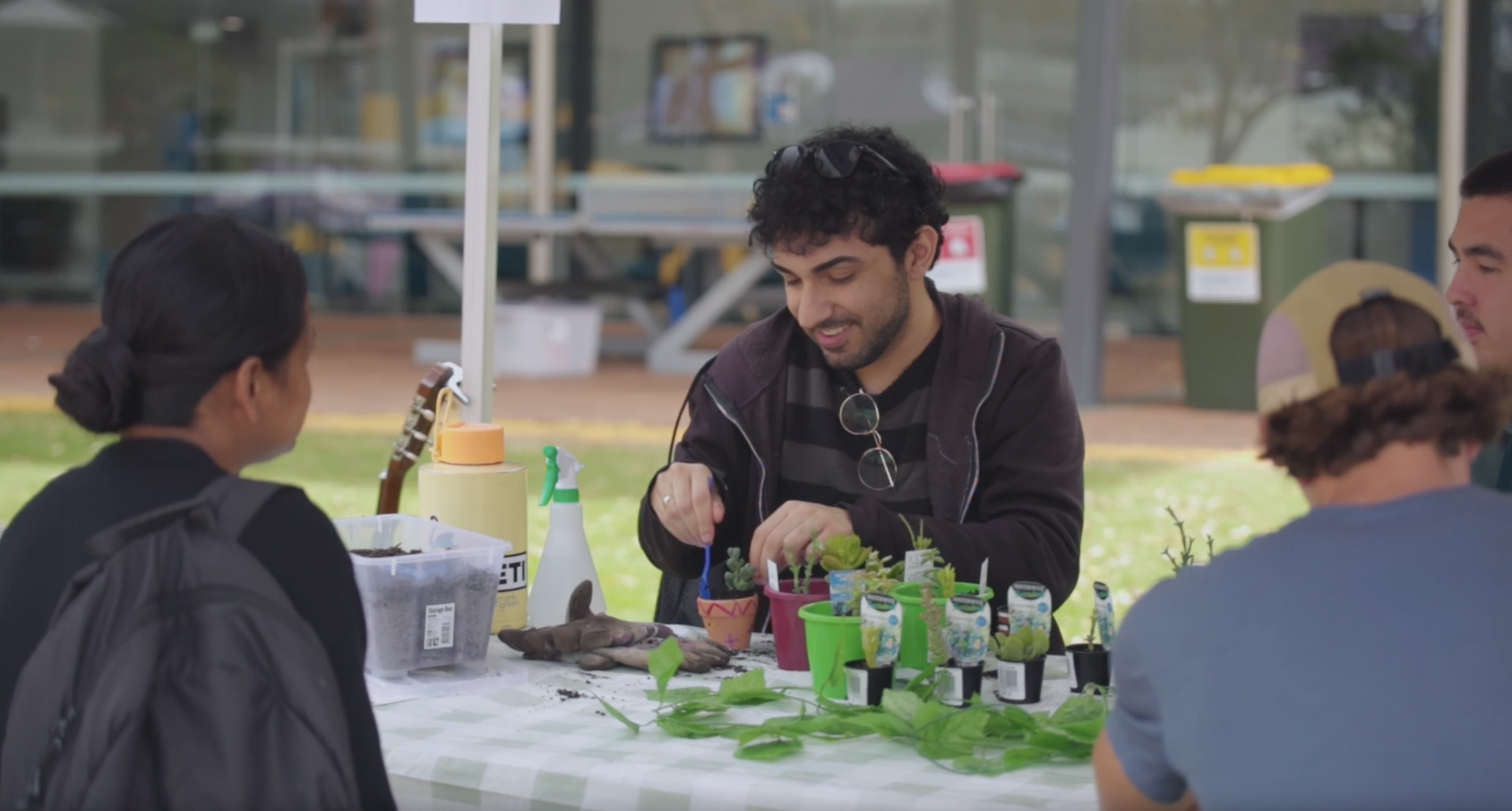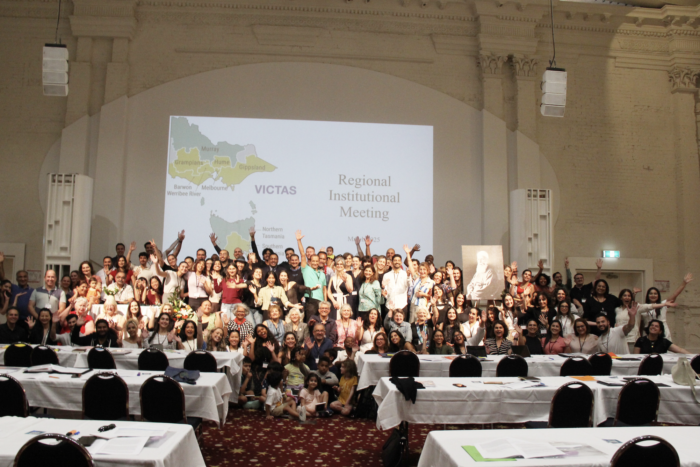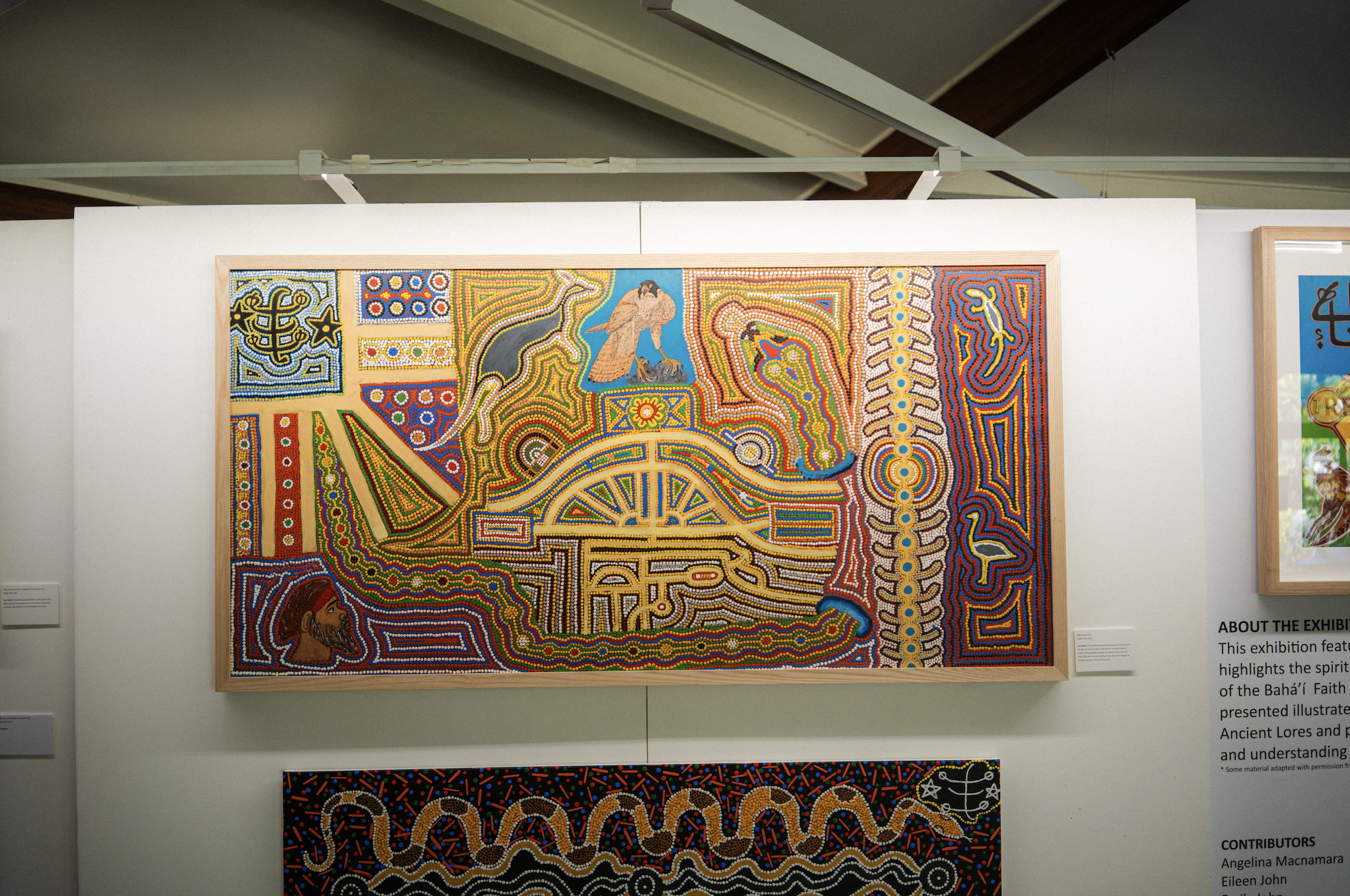Art showcases connection between Baha’i Faith and Aboriginal Spiritual Lore
When Wagan Guburu (Philip Obah Senior) shared his artwork titled Tjukurpa with the Elders in his community, they responded: “we have been waiting for this; we’ve been waiting for our Lore to be renewed”.
“When Dad had explained the story of it, they said ‘you finished now?’ and they explained the rest of the story,” says Wagan Guburu’s son, senior Lore man of the Wadja tribe Kugaman Banbari (Phillip Obah Junior).
“About five Elders, at the time of viewing that painting for the first time, they became Baha’is on the spot. They understood the spiritual law.”
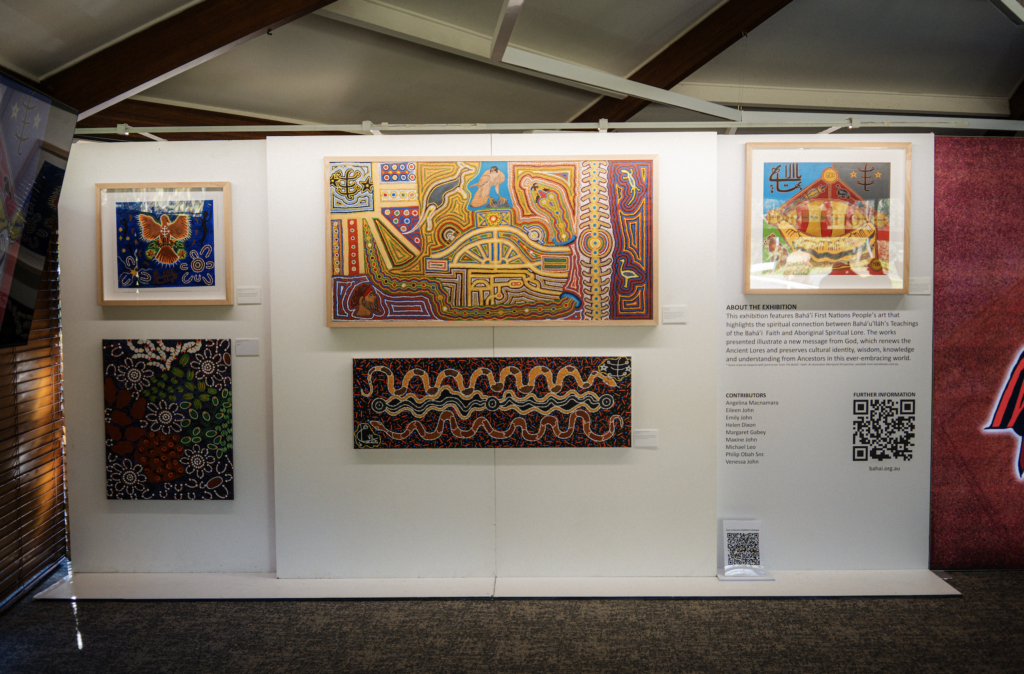
Tjukurpa tells the story of Progressive Revelation – a concept which explores how all the world’s religions are connected, with the appearance of Divine educators sent by one God throughout time to renew spiritual laws and ordinances according to time and place.
“In the Ancient cycle, there were many progressive revelations. For example the Rainbow Serpent, giving Aboriginal people the Lores to live by,” says Kugaman Banbari. “The Rainbow Serpent gave us the laws to survive and that became the Covenant between God and the people, and we’ve been practicing that ever since.”
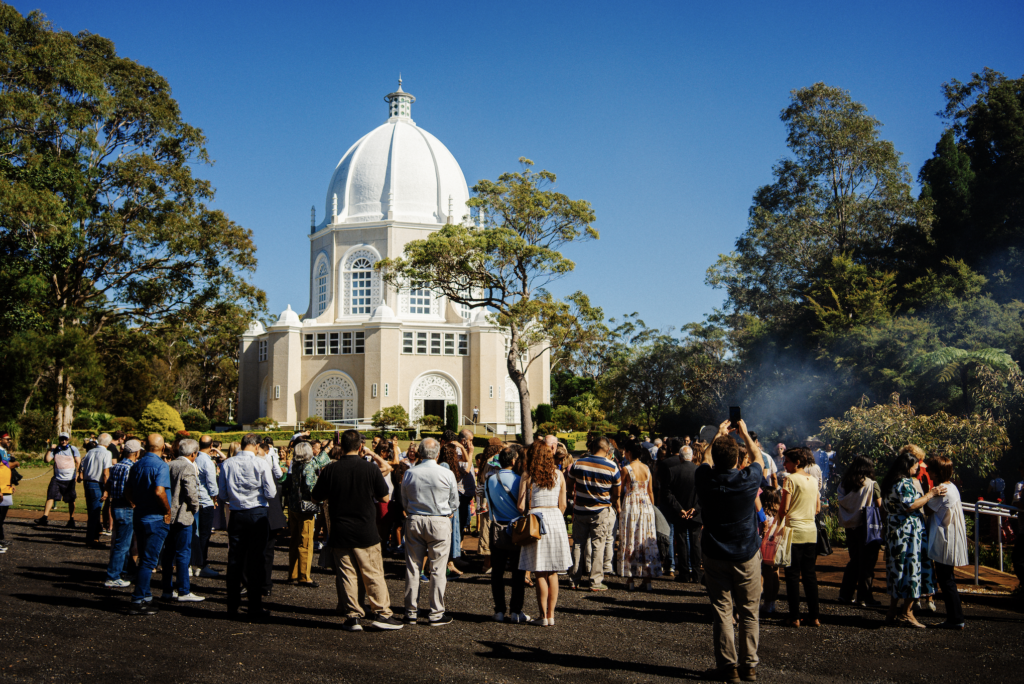
For tens of thousands of years, the Indigenous people of the world have used art, music and storytelling to maintain the integrity of their spiritual stories. “It is the Lore to pass this knowledge on, and it was against the Lore to change any detail of any story, as we cannot change any word that comes from the Divine Messengers, hence a strong oral culture,” says Kugaman Banbari.
“It was part of Dad’s vision to share the connection between Aboriginal spirituality and spiritual Lores with the Baha’i principles and spiritual insights. Painting was a cultural way of sharing stories. When the first painting was done, our senior Elders, because they’re familiar with painting and can see the stories within them, they understood the essence and message of it straight away.”
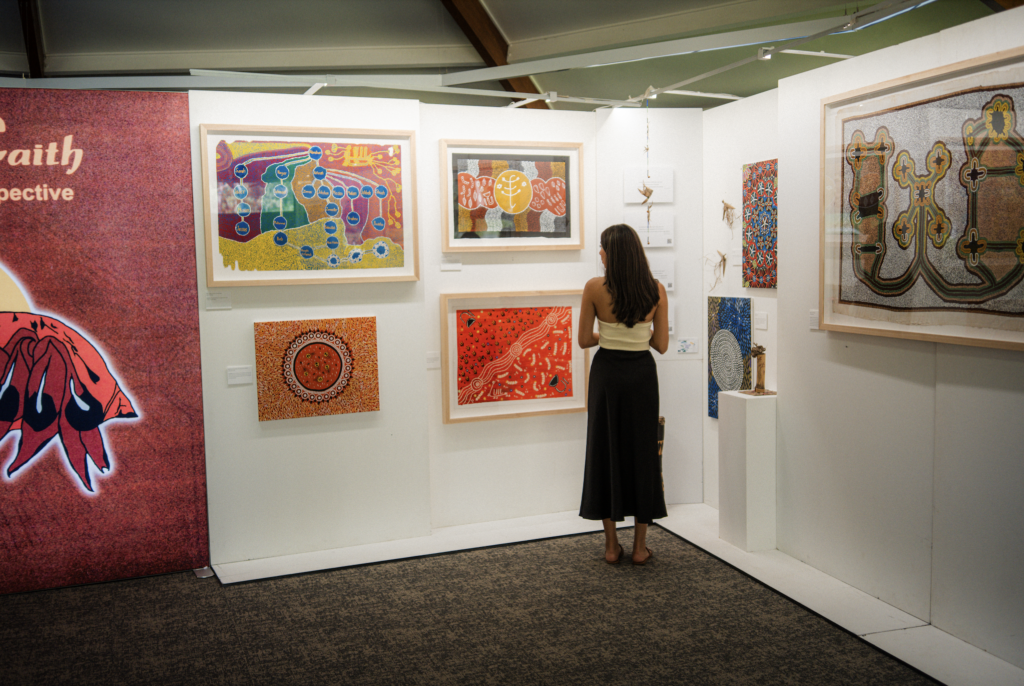
A First Nations exhibition on show at the Baha’i House of Worship from Ridvan this year until June, featured a selection of Baha’i First Nations People’s artworks highlighting the connection between Baha’u’llah’s teachings of the Baha’i Faith and Aboriginal Spiritual Lore.
The exhibition features 19 works, including Wagan Guburu’s works, as well as the Baha’i prayer Remover of Difficulties translated in three of the languages spoken in the Torres Strait Islands.
A Smoking Ceremony was held on the Temple grounds on the First Day of Ridvan to launch the exhibition, accompanied by a special Temple Service and followed by children’s activities and storytelling.
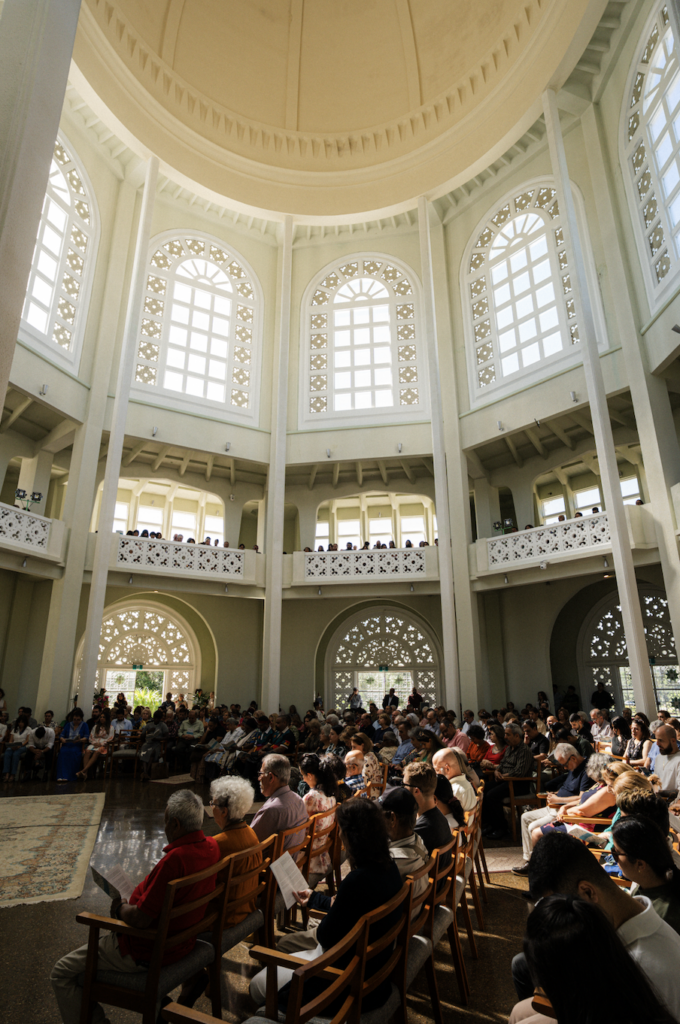
Townsville resident Zafar Smith, who assisted in bringing Wagan Guburu’s works to Sydney from Townsville for the exhibition, says art was an important communication tool for Aboriginal people.
“By having artwork that shows the connections between the Faith and Aboriginal spirituality makes these concepts more relatable and more easy to connect with for Aboriginal people. Rather than writing a 300-page book about a topic, have a painting about it to convey the same truth.
“Art is a language that Aboriginal people really connect with.”
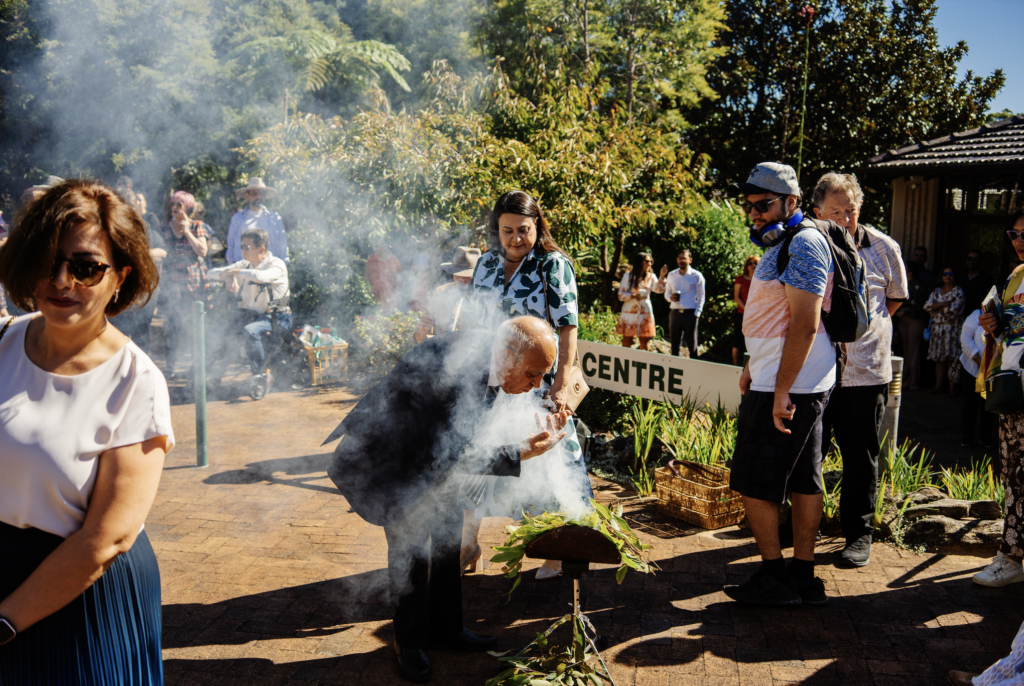
Kugaman Banbari says “if our people understand the Lore and how the spirit works, it can be easier for Aboriginal people to see the Baha’i Faith in its true spiritual form, because we understand and recognise the spiritual law from the Ancient cycle.”
“When people who understand our spiritual Lores and spiritual insights, when we show them the Baha’i Faith, they say ‘hang on, that’s exactly the same as our Lore!
“The whole purpose of this exhibition was to share that there is a strong spiritual connection there.”
Thanks for reading.
Subscribe
Sydney Baha’i House of Worship
The Baha’i House of Worship in Sydney, also known as the Baha’i Temple, stands as a symbol of the oneness of humanity. It is a place of worship open to people of all beliefs. Its primary purpose is to join worship of God with service to humanity, and therefore it is the fullest expression of Baha’i […]
Published in May, 2025, in Baha'i Institutions > Events
Available online at: horizons.bahai.org.au/bahai-institutions/art-showcases-connection-between-bahai-faith-and-aboriginal-spiritual-lore/
Related Stories
‘Joy to my heart’: learning how the arts can transform communities
A process of learning is currently underway in the northeast region of Australia as the Baha’is and their friends explore how the arts can serve as an integral part ...
Operating in mode of learning essential to community-building work
SYDNEY, NSW – Australia’s Regional Baha’i Councils, bodies tasked with overseeing the development of community-building affairs across the country, recently came together in Sydney to ...
Parliamentary reception showcases national efforts in strengthening unity and social cohesion
CANBERRA, ACT – The Australian Baha’i Community, in conjunction with Dr. Sophie Scamps MP, recently hosted the annual Parliamentary reception to celebrate efforts made across the country in ...
Nearly 1,000 people visit Baha’i Temple to celebrate births of Faith’s founders
MONA VALE, SYDNEY – Close to 1,000 people have visited Sydney’s Baha’i House of Worship to celebrate the occasion of the Twin Holy Days – the births of the founders of the Baha’i Faith, the ...
Celebrations, conversations and connections on-campus
Students from Edith Cowan University (ECU) in Western Australia are learning how Baha’i holy day celebrations can provide the ideal space to engage in meaningful conversations and strengthen ...
Individuals across Victoria and Tasmania gather in first regional meeting to explore growth process
Earlier this year, the Regional Baha’i Council for Victoria and Tasmania, a body of nine individuals overseeing the development of the community-building efforts in the region, hosted a gathering ...
